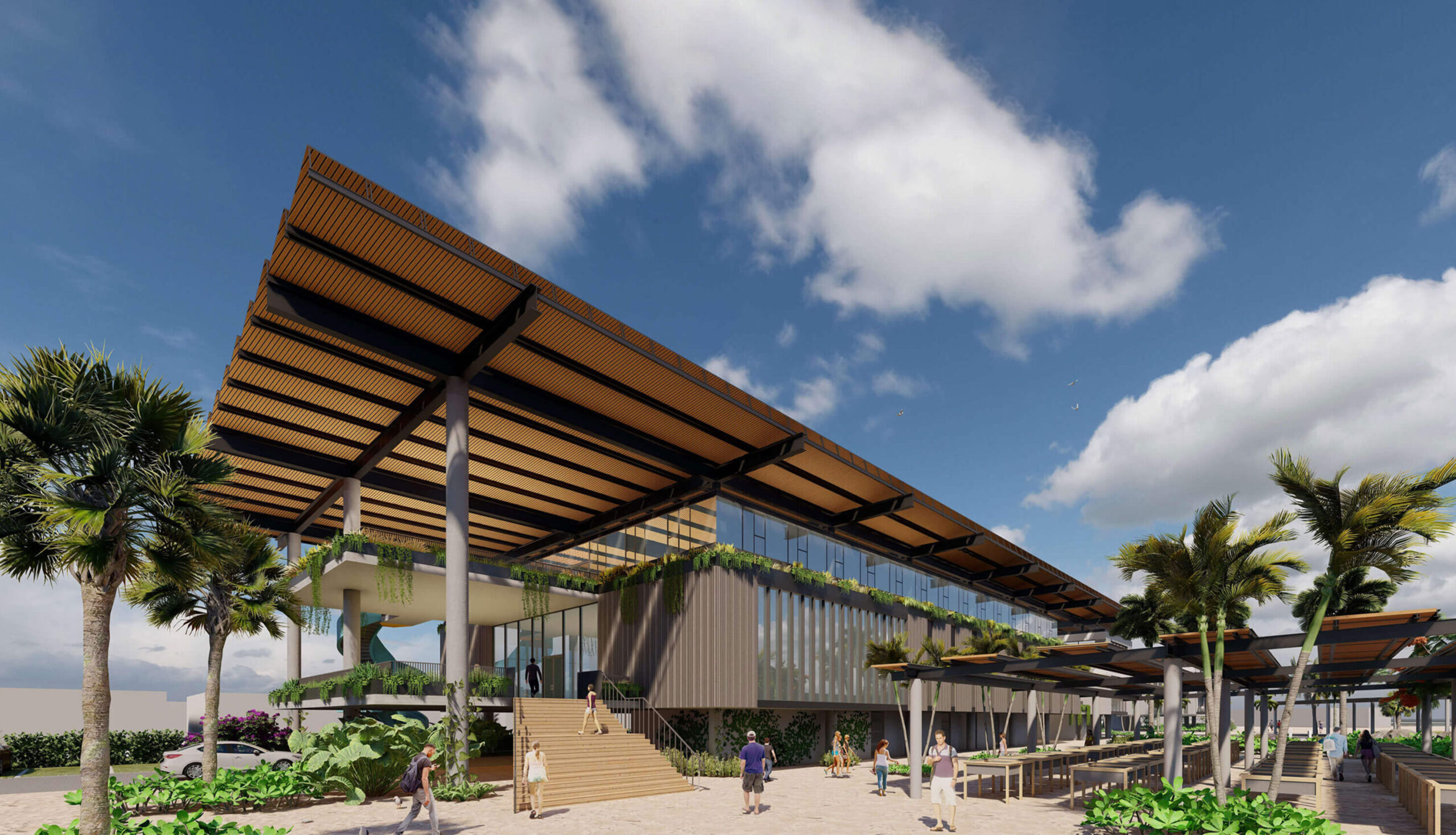
The concept calls for a multi-purpose facility to host teaching labs, research labs, seminar space, conferencing and administrative space as well as a detached 32-bed residential facility that would be designed to withstand Category 5-level hurricanes. Our team worked with stakeholders to understand the need, program and desired performance to develop a concept for the purpose of funding. Our design response incorporates resilient and sustainable features such as onsite energy generation through a solar canopy that also shades the building reducing cooling loads. The buildings were shaped and oriented on the site to promote natural ventilation, taking advantage of prevailing winds using the Venturi Effect. Native and xeriscape plant species are planned to reduce water and energy consumption, while providing shade and reducing ambient air temperatures. The buildings are intended to also use a grey water recycling system to take advantage of the afternoon rains during wet season.
